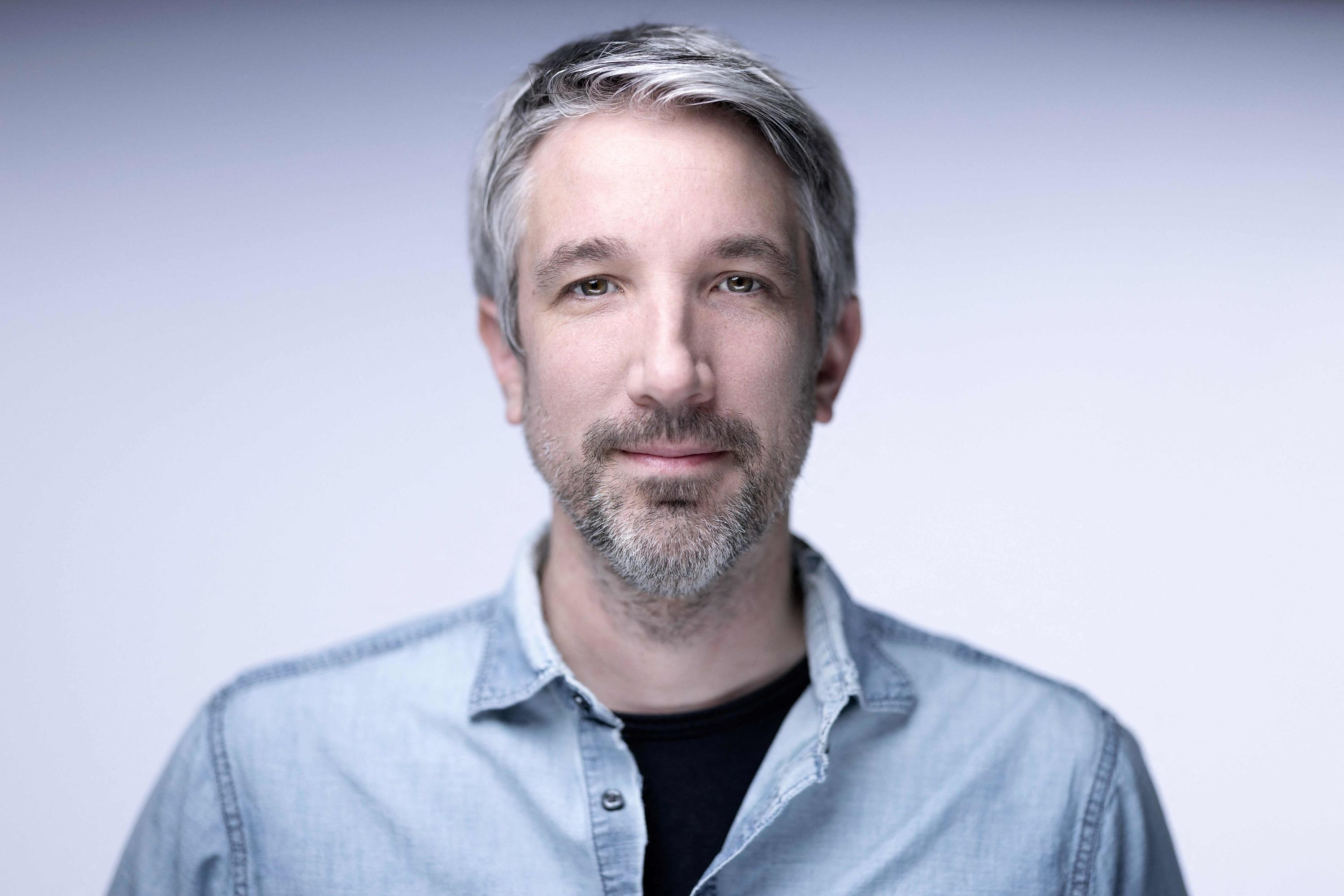the ROME - Of the roman cinema "Apollo 11" - that is in the same building of the institute Itis-Galilei, but with a side entrance on via Bixio, 80/a, right on the corner of via Conte Verde - accumulate acclaim for his role of representation in film, elsewhere only in passing, if not completely ignored. "The only room of the documentaries in Rome," wrote our Franco Montini on the Republic; "A laboratory on the side of who tells the truth", underlined Silvana Silvestri on the "Alias" of "The Manifesto". On the occasion of the Day of Memory, to 19.30, Monday 27 January, "Apollo 11" serves "1938: Several" Giorgio Treves, a film of 2018, with the Silver Ribbon as best short. At 20.30 will follow a meeting with the author and a group of historians and writers. Afterwards, at 21.15, "Who will write our history", by Roberta Grossman (USA, 2018, 95 min), film which will be in replication Tuesday, 28 to 17.
"1938: Different". "Fascism can still return in the guise of more innocent people. Our duty is to unmask it and to point to the index on each of the new shapes – every day, in every part of the world," wrote Umberto Eco. In 2018, have been recalled eighty years after the Promulgation of the Racial Laws of Fascist. An important anniversary and a theme that, unfortunately, is still very current. Eighty years ago, therefore, the Italian people, which was not traditionally anti-semitic, he was pushed by fascist propaganda to accept the persecution of a minority who lived peacefully in Italy for centuries. How was all this possible? And as far as we know even today of that historical moment? "1938 Several" wants to tell us about what led to the jews the italians the implementation of those laws, and the population of the jewish and non-jewish) lived the racism and the persecution. In particular, the film will focus on the subtle mechanisms of persuasion put in place by fascism, thanks to the effective and pervasive actions of the Ministry of Popular Culture (MinCulPop), management centre of the regime's propaganda.
"Who will write our history" . The film is written, directed and produced by Roberta Grossman. In November 1940, the nazis were 450 thousand jews in the Warsaw ghetto. A secret group composed of journalists, researchers and community leaders, led by the historian Emanuel Ringelblum and known by the code name Oyneg Shabes ("The joy of the Sabbath" in yiddish), he decided to fight the lies and the propaganda of the oppressors with a pen and paper rather than with guns and violence. Oyneg Shabes has told the story of the life in the ghetto from the jewish point of view. He has commissioned, diaries, essays, stories, poems and songs, and has documented the nazi atrocities with the eyewitnesses being able to get up to London the terrible reports about mass exterminations made by the germans. Then, while the trains deportavano the population to the gas chambers of Treblinka, and the ghetto was destroyed by the flames, the members of the Oyneg Shabes were able to bury 60,000 pages of documents in the hope that the archives survive the war and to their own end.
The largest collection of testimonies. Now, for the first time, the story of Emanuel Ringelblum and the archive of Oyneg Shabes is told in a documentary film that interweaves images of the texts of the archive with new interviews and rare footage, enriched by historical reconstructions that allow the viewer to be transported inside of the Ghetto and the lives of those courageous fighters of the resistance. Through the voices of the three times oscar-nominated Joan Allen and Oscar winner Adrian Brody, the film is a tribute to the determination that allowed the members of the Oyneg Shabes to create the largest collection of eyewitness testimony, able to survive the war.
The moments of hope, anguish and anger. The documentary follows their moments of hope, anguish, despair, and anger towards their fellow jews against the oppressors, the nazis. Capture their humor, the desire, the hunger, and their determination to maintain their humanity in the face of difficulties untold. And in the end, through their voices, actions and experiences, Who Will Write Our History defeats those who distort and disumanizzano the"other" in favour of those who stand up, fight, and, as he wrote a member of Oyneg Shabes, "scream the truth to the world".
"1938: Different". "Fascism can still return in the guise of more innocent people. Our duty is to unmask it and to point to the index on each of the new shapes – every day, in every part of the world," wrote Umberto Eco. In 2018, have been recalled eighty years after the Promulgation of the Racial Laws of Fascist. An important anniversary and a theme that, unfortunately, is still very current. Eighty years ago, therefore, the Italian people, which was not traditionally anti-semitic, he was pushed by fascist propaganda to accept the persecution of a minority who lived peacefully in Italy for centuries. How was all this possible? And as far as we know even today of that historical moment? "1938 Several" wants to tell us about what led to the jews the italians the implementation of those laws, and the population of the jewish and non-jewish) lived the racism and the persecution. In particular, the film will focus on the subtle mechanisms of persuasion put in place by fascism, thanks to the effective and pervasive actions of the Ministry of Popular Culture (MinCulPop), management centre of the regime's propaganda.
"Who will write our history" . The film is written, directed and produced by Roberta Grossman. In November 1940, the nazis were 450 thousand jews in the Warsaw ghetto. A secret group composed of journalists, researchers and community leaders, led by the historian Emanuel Ringelblum and known by the code name Oyneg Shabes ("The joy of the Sabbath" in yiddish), he decided to fight the lies and the propaganda of the oppressors with a pen and paper rather than with guns and violence. Oyneg Shabes has told the story of the life in the ghetto from the jewish point of view. He has commissioned, diaries, essays, stories, poems and songs, and has documented the nazi atrocities with the eyewitnesses being able to get up to London the terrible reports about mass exterminations made by the germans. Then, while the trains deportavano the population to the gas chambers of Treblinka, and the ghetto was destroyed by the flames, the members of the Oyneg Shabes were able to bury 60,000 pages of documents in the hope that the archives survive the war and to their own end.
The largest collection of testimonies. Now, for the first time, the story of Emanuel Ringelblum and the archive of Oyneg Shabes is told in a documentary film that interweaves images of the texts of the archive with new interviews and rare footage, enriched by historical reconstructions that allow the viewer to be transported inside of the Ghetto and the lives of those courageous fighters of the resistance. Through the voices of the three times oscar-nominated Joan Allen and Oscar winner Adrian Brody, the film is a tribute to the determination that allowed the members of the Oyneg Shabes to create the largest collection of eyewitness testimony, able to survive the war.
The moments of hope, anguish and anger. The documentary follows their moments of hope, anguish, despair, and anger towards their fellow jews against the oppressors, the nazis. Capture their humor, the desire, the hunger, and their determination to maintain their humanity in the face of difficulties untold. And in the end, through their voices, actions and experiences, Who Will Write Our History defeats those who distort and disumanizzano the"other" in favour of those who stand up, fight, and, as he wrote a member of Oyneg Shabes, "scream the truth to the world".
"The Republic will fight always in defense of the freedom of information, to its readers and to all those who have at heart the principles of democracy and civil coexistence"
Carlo Verdelli SUBSCRIBERS TO REPUBLIC © Reproduction reserved Today on the Coronavirus, the China of Xi now he's afraid Coronavirus: “Cases even without symptoms. But it is still a puzzle,” China, the virus that awakens the myth Coronavirus, tourism and consumption, Beijing closes. The global epidemic slows down the economy on The vote in Emilia: Salvini challenge the government. Manoeuvres in Parliamentthe Republic

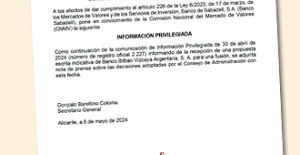 Sabadell rejects the merger with BBVA and will fight to remain alone
Sabadell rejects the merger with BBVA and will fight to remain alone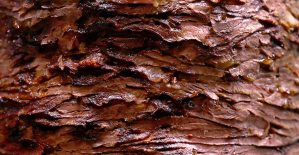 In Germany, the far left wants to cap the price of “doner kebabs”
In Germany, the far left wants to cap the price of “doner kebabs” Israel-Hamas war: Gaza between hope of truce and fear of Israeli offensive in the South
Israel-Hamas war: Gaza between hope of truce and fear of Israeli offensive in the South “Mom, Dad, please don’t die”: in the United States, a nine-year-old child saves the lives of his parents injured in a tornado
“Mom, Dad, please don’t die”: in the United States, a nine-year-old child saves the lives of his parents injured in a tornado The presence of blood in the urine, a warning sign of bladder cancer
The presence of blood in the urine, a warning sign of bladder cancer A baby whose mother smoked during pregnancy will age more quickly
A baby whose mother smoked during pregnancy will age more quickly The euro zone economy grows in April at its best pace in almost a year but inflationary pressure increases
The euro zone economy grows in April at its best pace in almost a year but inflationary pressure increases Children born thanks to PMA do not have more cancers than others
Children born thanks to PMA do not have more cancers than others “House of the Dragon”, “Succession”… Max, the new streaming platform from HBO and Discovery, launched in France on June 11
“House of the Dragon”, “Succession”… Max, the new streaming platform from HBO and Discovery, launched in France on June 11 The A13 motorway will finally reopen this Friday, in one direction only
The A13 motorway will finally reopen this Friday, in one direction only TNT commission of inquiry: tensions between LFI deputies and Macronists before the vote on the report
TNT commission of inquiry: tensions between LFI deputies and Macronists before the vote on the report Apple unveils a new, more efficient iPad range
Apple unveils a new, more efficient iPad range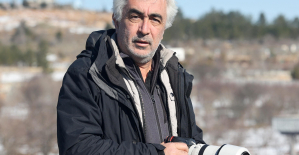 The Gaza War invites itself to the 2024 Pulitzer Prizes
The Gaza War invites itself to the 2024 Pulitzer Prizes Judith Godrèche presents a short film on sexual violence in Cannes
Judith Godrèche presents a short film on sexual violence in Cannes Kevin Spacey: new trial in sight in London for the American actor, for sexual assault
Kevin Spacey: new trial in sight in London for the American actor, for sexual assault Taylor Swift fans make London pub Black Dog their new place of pilgrimage
Taylor Swift fans make London pub Black Dog their new place of pilgrimage Omoda 7, another Chinese car that could be manufactured in Spain
Omoda 7, another Chinese car that could be manufactured in Spain BYD chooses CA Auto Bank as financial partner in Spain
BYD chooses CA Auto Bank as financial partner in Spain Tesla and Baidu sign key agreement to boost development of autonomous driving
Tesla and Baidu sign key agreement to boost development of autonomous driving Skoda Kodiaq 2024: a 'beast' plug-in hybrid SUV
Skoda Kodiaq 2024: a 'beast' plug-in hybrid SUV The home mortgage firm rises 3.8% in February and the average interest moderates to 3.33%
The home mortgage firm rises 3.8% in February and the average interest moderates to 3.33% This is how housing prices have changed in Spain in the last decade
This is how housing prices have changed in Spain in the last decade The home mortgage firm drops 10% in January and interest soars to 3.46%
The home mortgage firm drops 10% in January and interest soars to 3.46% The jewel of the Rocío de Nagüeles urbanization: a dream villa in Marbella
The jewel of the Rocío de Nagüeles urbanization: a dream villa in Marbella Institutions: senators want to restore the accumulation of mandates and put an end to the automatic presence of ex-presidents on the Constitutional Council
Institutions: senators want to restore the accumulation of mandates and put an end to the automatic presence of ex-presidents on the Constitutional Council Europeans: David Lisnard expresses his “essential and vital” support for François-Xavier Bellamy
Europeans: David Lisnard expresses his “essential and vital” support for François-Xavier Bellamy Facing Jordan Bardella, the popularity match turns to Gabriel Attal’s advantage
Facing Jordan Bardella, the popularity match turns to Gabriel Attal’s advantage Europeans: a senior official on the National Rally list
Europeans: a senior official on the National Rally list These French cities that will boycott the World Cup in Qatar
These French cities that will boycott the World Cup in Qatar “The future is for us”: “disappointed” and “proud” at the same time, Al-Khelaïfi sees the glass half full after the elimination of PSG
“The future is for us”: “disappointed” and “proud” at the same time, Al-Khelaïfi sees the glass half full after the elimination of PSG PSG: “Since January, these have not been my best matches,” agrees Zaire-Emery, who promises to “come back stronger”
PSG: “Since January, these have not been my best matches,” agrees Zaire-Emery, who promises to “come back stronger”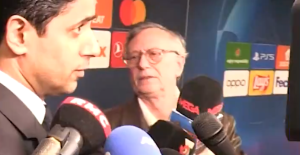 “What is this question, honestly?” : Nasser Al-Khelaïfi (very) annoyed after PSG-Dortmund
“What is this question, honestly?” : Nasser Al-Khelaïfi (very) annoyed after PSG-Dortmund “I am the guy who has to score the goals”: Mbappé does not hide and assumes responsibility after PSG’s exit
“I am the guy who has to score the goals”: Mbappé does not hide and assumes responsibility after PSG’s exit






